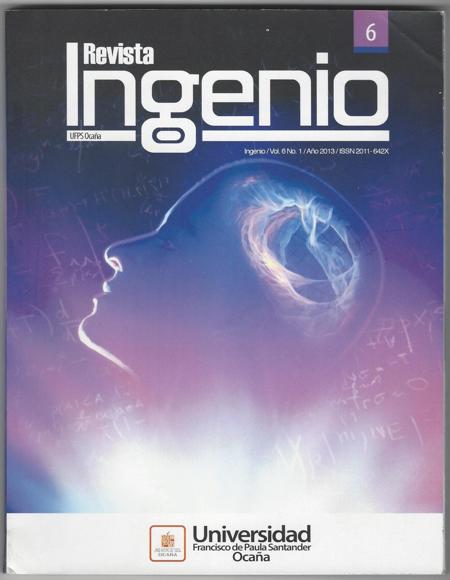Cooperación en el desarrollo de proyectos de software libre
Cooperation in the development of free software projects
Contenido principal del artículo
Este artículo presenta un conjunto de elementos para la cooperación pertinentes a los proyectos de software libre y a teorías de la cooperación, a partir de reconocer como desarrolladores distribuidos geográficamente en el mundo encuentran la motivación para crear comunidad alrededor del software libre y desarrollar software exitoso. También se estudió casos de éxito a nivel mundial para mostrar como los participantes a través de una comunicación mediada por computador resuelven conflictos de racionalidad individual y grupal usando escenarios de confianza y reciprocidad sobre el uso de recursos comunes que permiten la cooperación para el desarrollo y mantenimiento del software libre.
Descargas
Datos de publicación
Perfil evaluadores/as N/D
Declaraciones de autoría
Indexado en
- Sociedad académica
- Universidad Francisco de Paula Santander
- Editorial
- Universidad Francisco de Paula Santander
Detalles del artículo
Axelrod, R. (1984). The Evolution of Cooperation, Basic Books, NY
Cuesta, B.& Parra, J. (2013). Curso E-learning para el mejoramiento de las competencias de cooperación en el desarrollo de proyectos de software libre orientado a los lineamientos metodológicos de la Programación Extrema. Tesis de Maestría, Universidad Autónoma de Bucaramanga Colombia. Maestría en Software Libre.
De Joode, V. & De Bruijn; R. & Van Eeten, M. (2003). Protecting the Virtual Commons; Self-organizing open source communities and innovative intellectual property regimes, Information Technology & Law Series, T.M.C. Asser Press, The Hague
Feller, J. & Fitzgerald, B. (2001). Understanding Open Source Software Development. Addison-Wesley, Reading, MA.
González Barahona, J. (2003). Introducción al software libre: El desarrollador y sus motivaciones. UniversitatOberta de Catalunya. pp. 91 - 245.
Hardin, G. (1968). The Tragedy of the Commons. Science, New Series, Vol.162, No. 3859. pp. 1243-1248.
Koch, S. & Schneider, G. (2002). 'Effort, co-operation and co-ordination in an open source software project: GNOME', Information Systems Journal 12(1), pp. 27-42.
Koch, S. & Schneider, G. (2002b). “Results from software engineering research into open source development projects using public data,gkeitsfeld InformationsverarbeitungundInformationswirtschaft”, En: H.R. Hansen, W.H. Janko (Hrsg.), Wirtschaftsuniversität Wien (núm. 22), 2002. Kollock, P. & Smith, M. (1996). “Managing the Virtual Commons: Cooperation and Conflict in Computer Communities.” Pp. 109-128 in Computer-Mediated Communication: Linguistic, Social, and Cross-Cultural Perspectives, edited by Susan Herring. Amsterdam: John Benjamins.
Kollock, P. (1998). Social dilemmas: The anatomy of cooperation. Annual Review of Sociology, 24 (1). pp. 183-214.
Kollock, P. (1999). "The Economies of Online Cooperation: Gifts and Public Goods in Cyberspace". In Smith, Marc; Kollock, Peter. Communities in Cyberspace. London: Routledge. pp. 220–239
Markus, M. & Manville, B. &Agres,C. (2000). What Makes a Virtual Organization Work?, Sloan Management Review, 42 (1) 13-26.
Ostrom, E. (1990). Governing the commons: The evolution of institutions for collective action.Cambridge University Press.
Ostrom, E. (1997). A Behavioral Approach to the Rational Choice Theory of Collective Action: Presidential Address, American Political Science Association. The American Political Science Review, Vol. 92, No. 1. pp. 1-22.
Ostrom, E. (2001). Social dilemmas and human behavior.Economics in Nature.SocialDilemmas.Mate Choice and BiologicalMarkets. pág.23–41.
Perens, B. (1999). The Open Source Definition, in OpenSources Voices from the Open Source Revolution, DiBona, C., S. Ockman and M. Stone (Eds) O'Reilly & Associates, Sebastopol, pp. 171-189.
Raymond, E.(1999). The Cathedral and the Bazaar.Knowledge, Technology & Policy, Fall99, Vol. 12 Issue 3. pp. 23-49.
Schweik, C.(2005). “An Institutional Analysis Approach to Studying Libre Software “Commons”. Upgrade” The European Journal for the Informatics Professional.
Schweik, C. & English, R.. (2007).Tragedy of the FOSS Commons? Investigating the Institutional Designs of Free/Libre and Open Source Software Projects, IEEE Computer Society Washington, DC, USA.
Stallman, R. (1998). “The GNU Operating System and the Free Software Movement,” inOpenSources: Voices from the Open Source Revolution, C. DiBona, S. Ockman, andM. Stone, Eds.: O'Reilly Books, pp. 53-70
Stallman, R. (2002). Free Software, Free Society: Selected Essays of Richard M. Stallman, GNU Press, Boston
Walker, J. &Ostrom, E. (2007). Trust and reciprocity as foundations for cooperation: Individuals, institutions, and context. In Capstone Meeting of the RSF Trust Initiative at the Russell Sage Foundation.









